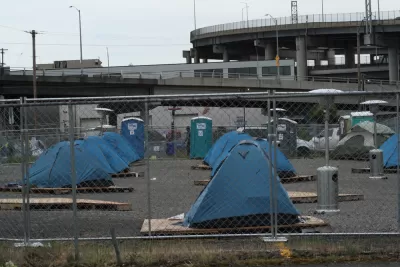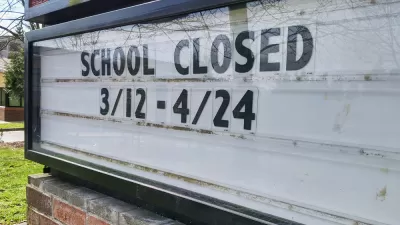Communities struggling with the economic, social, and health realities of the 21st century must start planning now to mitigate the worst outcomes of the coronavirus pandemic, according to a new report from the Center for Community Progress.

Center for Community Progress Senior Fellow Alan Mallach has written a report intended to "help communities across the U.S. look ahead to proactively consider and combat the budget, equity, and programmatic challenges of a post-COVID-19 environment."
The "Hope for the Best, Plan for the Worst: Addressing the Aftermath Of The COVID-19 Pandemic In America’s Struggling Neighborhoods" report specifically addresses the challenges facing cities and neighborhoods that were struggling economically before the pandemic hit. Neighborhoods struggling before the pandemic are expected to experience some of the most difficult economic and social challenges as a result of the pandemic, according to the premise of the report.
From the report's introduction:
Many, victimized not long ago by subprime lending and widespread foreclosures, had only begun to recover from the Great Recession. Many more were still mired in concentrated poverty and unemployment, while facing significant health and environmental challenges. Already economically stressed and physically disinvested, these areas are likely to see more rent and mortgage arrears than more prosperous areas. With weaker housing markets, they may see their modest recovery in recent years reversed by declining home sales and tighter credit. They are more dependent on public services than wealthier areas and will be harder hit as municipalities are forced to tighten their belts.
The need for planning is already pressing, according to the report, but here's a good place to start on the hard work ahead.

Alabama: Trump Terminates Settlements for Black Communities Harmed By Raw Sewage
Trump deemed the landmark civil rights agreement “illegal DEI and environmental justice policy.”

Study: Maui’s Plan to Convert Vacation Rentals to Long-Term Housing Could Cause Nearly $1 Billion Economic Loss
The plan would reduce visitor accommodation by 25% resulting in 1,900 jobs lost.

Planetizen Federal Action Tracker
A weekly monitor of how Trump’s orders and actions are impacting planners and planning in America.

Waymo Gets Permission to Map SF’s Market Street
If allowed to operate on the traffic-restricted street, Waymo’s autonomous taxis would have a leg up over ride-hailing competitors — and counter the city’s efforts to grow bike and pedestrian on the thoroughfare.

Parklet Symposium Highlights the Success of Shared Spaces
Parklets got a boost during the Covid-19 pandemic, when the concept was translated to outdoor dining programs that offered restaurants a lifeline during the shutdown.

Federal Homelessness Agency Places Entire Staff on Leave
The U.S. Interagency Council on Homelessness is the only federal agency dedicated to preventing and ending homelessness.
Urban Design for Planners 1: Software Tools
This six-course series explores essential urban design concepts using open source software and equips planners with the tools they need to participate fully in the urban design process.
Planning for Universal Design
Learn the tools for implementing Universal Design in planning regulations.
Caltrans
Smith Gee Studio
Institute for Housing and Urban Development Studies (IHS)
City of Grandview
Harvard GSD Executive Education
Toledo-Lucas County Plan Commissions
Salt Lake City
NYU Wagner Graduate School of Public Service





























